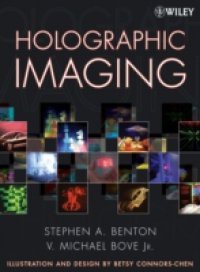The only all-inclusive treatment of holography from fundamental principles to the most advanced concepts While several existing texts cover different aspects of the field of holography, none provides a complete, up-to-date, and accessible view of its popular, scientific, and engineering aspects. Now, from an author team that includes one of the world's pioneers in the field, Holographic Imaging fills this need with a single, comprehensive text that covers the subject from traditional holography to the cutting-edge development of the world's most advanced three-dimensional holographic images, holographic printing, and holographic video. Written in an engaging and easy-to-follow style, Holographic Imaging promotes a hands-on approach to making holograms and provides readers with a working understanding of how and why they work. Following a brief introduction to the fundamentals of light and diffraction, coverage includes: the diffraction efficiency of gratings, "platonic" holography, a ray-tracing analysis of holography, holographic lenses and in-line "Gabor" holography, off-axis "Leith & Upatnieks" holography, non-laser illumination of holograms, phase conjunction and real image projection, full-aperture transfer holography, white-light transmission "rainbow" holography, practical issues in rainbow holography, in-line "Denisyuk" reflection holography, off-axis reflection holography, edge-lit holography, computational display holography, holographic printing, and holographic television. Helpful diagrams and equations that summarize the mathematical and physical principles for each technique discussed make this an approachable resource for readers from a variety of backgrounds, including undergraduate and postgraduate students with an interest in optics, optoelectronics, and information display, as well as researchers, scientists, engineers, and technology-savvy artists.

